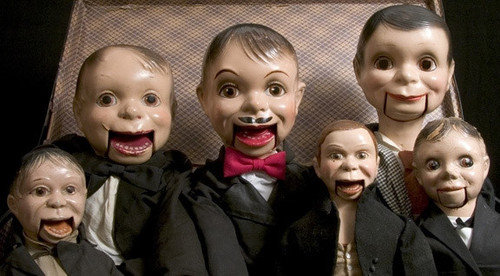Wolfgang von Kempelen
dal 21/6/2007 al 18/8/2007
Segnalato da
Ralf Baecker
Zoe Beloff
Péter Forgács
Ken Feingold
Herbert Kitzel
Severin Hofmann
David Moises
György Jovánovics
Gergely Kovács
Bence Samu
Gergely László
Péter Rákosi
Jürg Lehni
Stephan Krass
M+M
János Major
Katrin von Maltzahn
Daria Martin
John Miller
Frank Lutz
Gyula Pauer
Wolf Pehlke
Simon Penny
Martin Riches
robotlab
Alexei Shulgin
Zoltán Szegedy-Maszák
Róbert Langh
Márton Fernezelyi
Richard Aczel
Tamás Waliczky
Georg Winter
Michael Markert
József Mélyi
Bernhard Serexhe
Rita Kálmán
Barbara Kirschner
21/6/2007
Wolfgang von Kempelen
ZKM_Center for Art and Media, Karlsruhe
Mensch-[in der]-Maschine. Taking the chess automaton as its point of departure, the joint exhibition by Budapest's C3 foundation and ZKM | Karlsruhe, expands the image of Kempelen, the scientist, engineer, artist, actor, state official, and private person, by exploring the mechanical inventions of his epoch.

Mensch-[in der]-Maschine
Curated by József Mélyi, Bernhard Serexhe, and Rita Kálmán
Curatorial assistant: Barbara Kirschner
Throughout time, the animated image and the autonomously moving, intelligent machine have been both a source of magnetism and a vision of horror. For over two hundred years, no machine has triggered as much amazement and doubt, both in the circles of amateurs as well as scientists, as the chess-playing automaton built by Wolfgang von Kempelen (1734–1804). The Schachautomat, an amazing work with great significance in technical history as well as an incubator of utopian ideas, with which Kempelen duped the royal house of Karlsruhe in 1785, was also a slap in the face and a parody. The secret of the machine that supposedly possessed artificial intelligence was later discovered to be a human hidden within it. An entire era’s belief in progress was put to the test.
Taking the chess automaton as its point of departure, the joint exhibition by Budapest’s C³ foundation and ZKM | Karlsruhe, expands the image of Kempelen, the scientist, engineer, artist, actor, state official, and private person, by exploring the mechanical inventions of his epoch.
The exhibition at ZKM focuses on current artistic productions dealing with the metaphor laid out by Kempelen’s machine. The theme of the human machine can be found in the works of numerous contemporary artists. From the mechanical automaton to robots and modern computers, the exhibition shows the variants of the chess automaton from the eighteenth century to the present day. In their works, the twenty participating artists probe the theoretical implications and continued effects of Kempelen’s automaton in a contemporary context. In this way, they offer a contribution to the understanding of our world and the questions relevant to us.
One of the most important points here is certainly whether the presentation of an intelligent machine is not a contradiction in itself. The ideas of "artificial intelligence" that replace the human with the machine set this questioning process in motion. If there is in fact a human in every machine, as with Kempelen’s chess automaton, then humans can also be destroyed by the superiority of the machinery that they have set in motion.
Participating artists:
Ralf Baecker, Zoe Beloff, Péter Forgács, Ken Feingold, Herbert Kitzel, Severin Hofmann / David Moises, György Jovánovics, Gergely Kovács / Bence Samu, Gergely László und Péter Rákosi, Jürg Lehni / Stephan Krass, M+M, János Major, Katrin von Maltzahn, Daria Martin, John Miller / Frank Lutz, Gyula Pauer, Wolf Pehlke, Simon Penny, Martin Riches, robotlab, Alexei Shulgin, Zoltán Szegedy-Maszák mit Róbert Langh, Márton Fernezelyi und Richard Aczel, Tamás Waliczky, Georg Winter und Michael Markert
Guided tours: Sun 1 pm
Further locations and dates of the exhibition:
Mücsarnok / Kunsthalle, Budapest, March 24– May 28, 2007
This project is part of the collaboration Bipolar deutsch-ungarische Kulturprojekte und Ungarischer Akzent (Bipolar German-Hungarian cultural projects and Hungarian accent). »Bipolar« is an initiative of the German Federal Cultural Foundation (Kulturstiftung des Bundes).
ZKM_Center for Art and Media
Lorenzstrasse 19 - Karlsruhe



